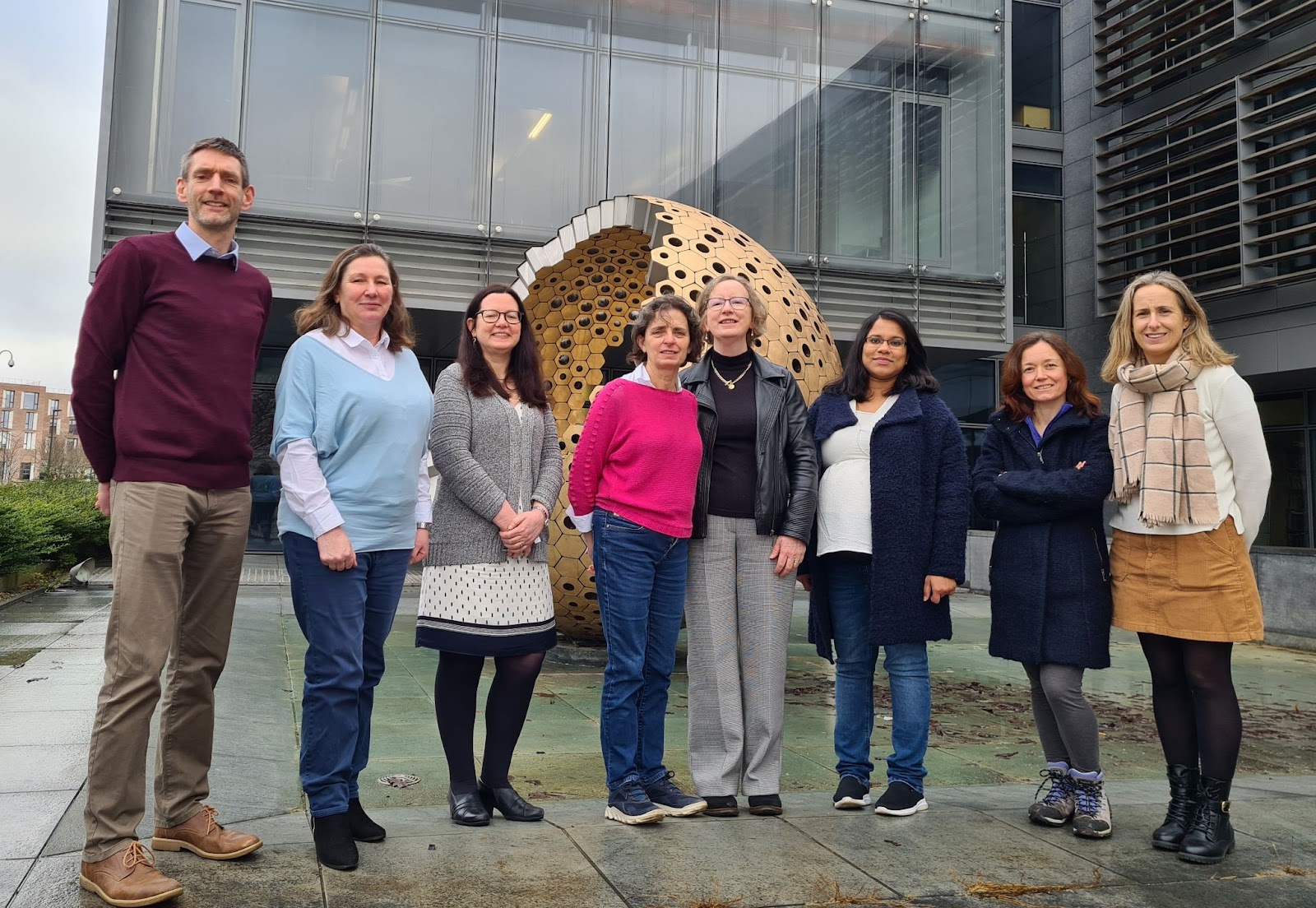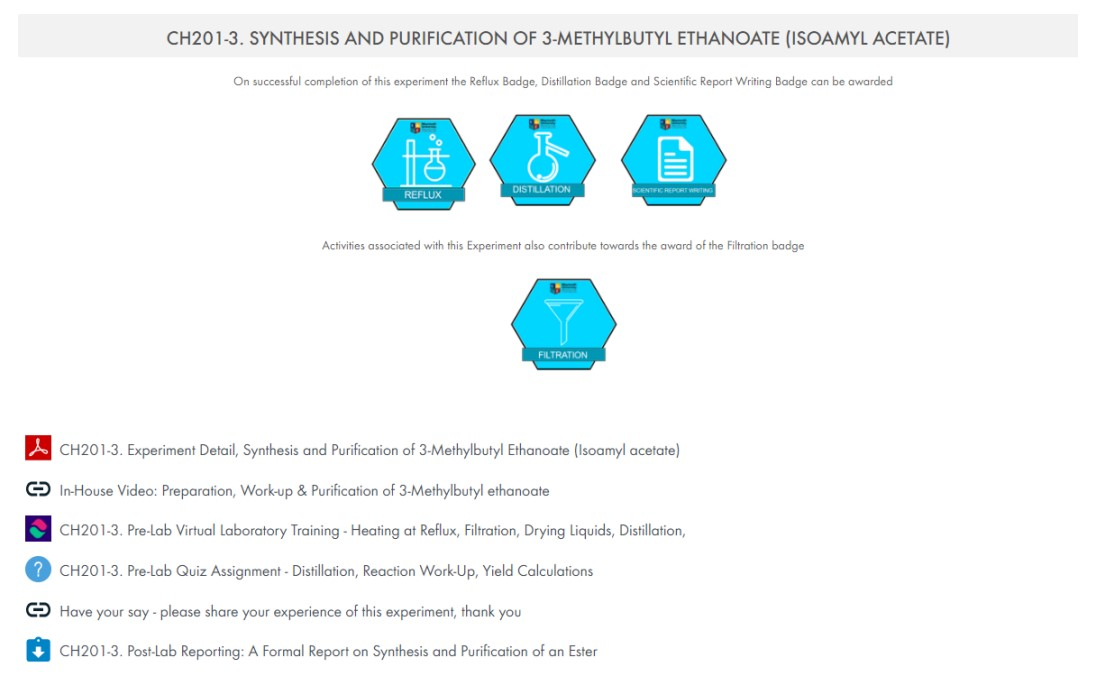
Maynooth University’s Chemistry Department increases students’ awareness of their skills, improving competency for employment
Students being “work-ready” is a big focus within Ireland’s higher education sector right now. Students need to graduate from HE courses that have promoted and embedded transversal skills.
Ireland’s Higher Education Authority have funded the Human Capital Initiative (HCI) - which aims to increase capacity in HE to provide skills focussed programmes. Under this initiative the Team at Maynooth are leading a Virtual Labs project, an enterprise-supported, multi-partner project that is developing blended courses where virtual training supports and reinforces in-lab experiences. Maynooth University is one of five academic institutions in the Republic of Ireland to be part of the Virtual Labs HCI Project; partners include Dublin City University, Dundalk Institute of Technology, Technical University of the Shannon and University College Cork.
In 2022, Professor Frances Heaney and her colleagues in the Chemistry Department won one of LearnSci’s Teaching Innovation Awards guiding students, by way of a badging project, towards being able to develop and identify the important technical and transversal skills within their laboratory programmes.

The Challenge:
How to enable students to develop and identify their skills
“Irish students are very aware of developing skills to maximise their employability,” says Professor Heaney. “We wanted to emphasise to them that chemistry labs are an opportunity to gain so many valuable skills and become competent lab scientists."
The Maynooth team therefore aimed to enable students to not only develop but also identify their own achievements, and to see attainment of key technical and generic skills as facilitators of employability and markers of success, independent of their end-of-year results.

The Solution:
Blended courses and digital badging working together to guide students
Students were able to develop their skills through the blended courses created under the large-scale HCI project. Maynooth’s student partners were Chemistry students from first, second, third and fourth year, meaning approximately 750 students participated, all with unique experiences.
The team used virtual labs as pedagogical tools, blended with face-to-face learning to help students deepen their understanding of concepts, promote technical development and to facilitate teamwork similar to a virtual workplace experience.
LearnSci’s LabSims were used as virtual labs during pre-lab work. A scaled-back lab manual replaced the more traditional version, whereby instead of step-by-step instructions for each process, students were simply pointed to the relevant LabSim. Practising the procedure in advance enhanced understanding and meant that students were more familiar with the concepts before they entered the lab.
This initiative involved the use of Badges, a new plug-in for Maynooth’s Moodle users, and was piloted with an organic chemistry module for students in the second year of their four-year programme. Digital Badges were created for ten skills, and the competency development opportunities were explicitly signposted within the lab manual. As students completed modules by working through the graded (quizzes and LearnSci LabSims) and non-graded (e.g. in-house experiment videos) material, they were awarded digital badges for having gained the relevant skills.

Importantly, these Badges were displayable as a digital passport or within a social media profile. This meant a student could add them to their LinkedIn profile, and they could also form part of discussions at job and internship interviews.


The Results:
Badges raise students’ awareness that gaining skills from blended courses improves their competency for employment
Badges raise students’ awareness that gaining skills from blended courses improves their competency for employment
36/40 students agree or strongly agree
36/40 students agree or strongly agree
Engagement and uptake with the badging pilot project was high - over 90% of students engaged, with 1,485 Badges awarded. Professor Heaney is clear that the integration of Badges with VLE assignment platforms, including LearnSci LabSims, was central to the project’s success. She says, “The huge uptake for badging indicates outstanding engagement, especially as award criteria included non-credit bearing elements. Ongoing student feedback reflects a highly positive learning experience.”
95% (n=40) of students agreed that Badges had been a positive feature of the module, while 90% of students highly valued the in-manual skill signposting. Perhaps most pleasingly for the team, 95% of students agreed that badging had increased their awareness that skills acquired could improve their competency for employment.

Innovation in teaching leads to wider recognition
As well as improving their students’ learning experiences, Maynooth’s innovation has led to wider recognition within the industry. Professor Heaney and Dr Velasco-Torrijos both attended Horizons in STEM in June 2023, along with over 100 delegates from universities across the UK and Ireland. Professor Heaney presented on ‘Virtual Laboratory Teaching: A Blended Approach’, while both Professor Heaney and Dr Velasco-Torrijos presented in LearnSci’s parallel session on ‘Micro-Skill Badging: Evidencing In-Course Development of Employability Skills and Competencies’.
If you're eager to enhance skills in your department and explore the possibilities of digital badging, reach out to us today at info@learnsci.com. We'll talk you through the innovative opportunities available with LearnSci solutions.